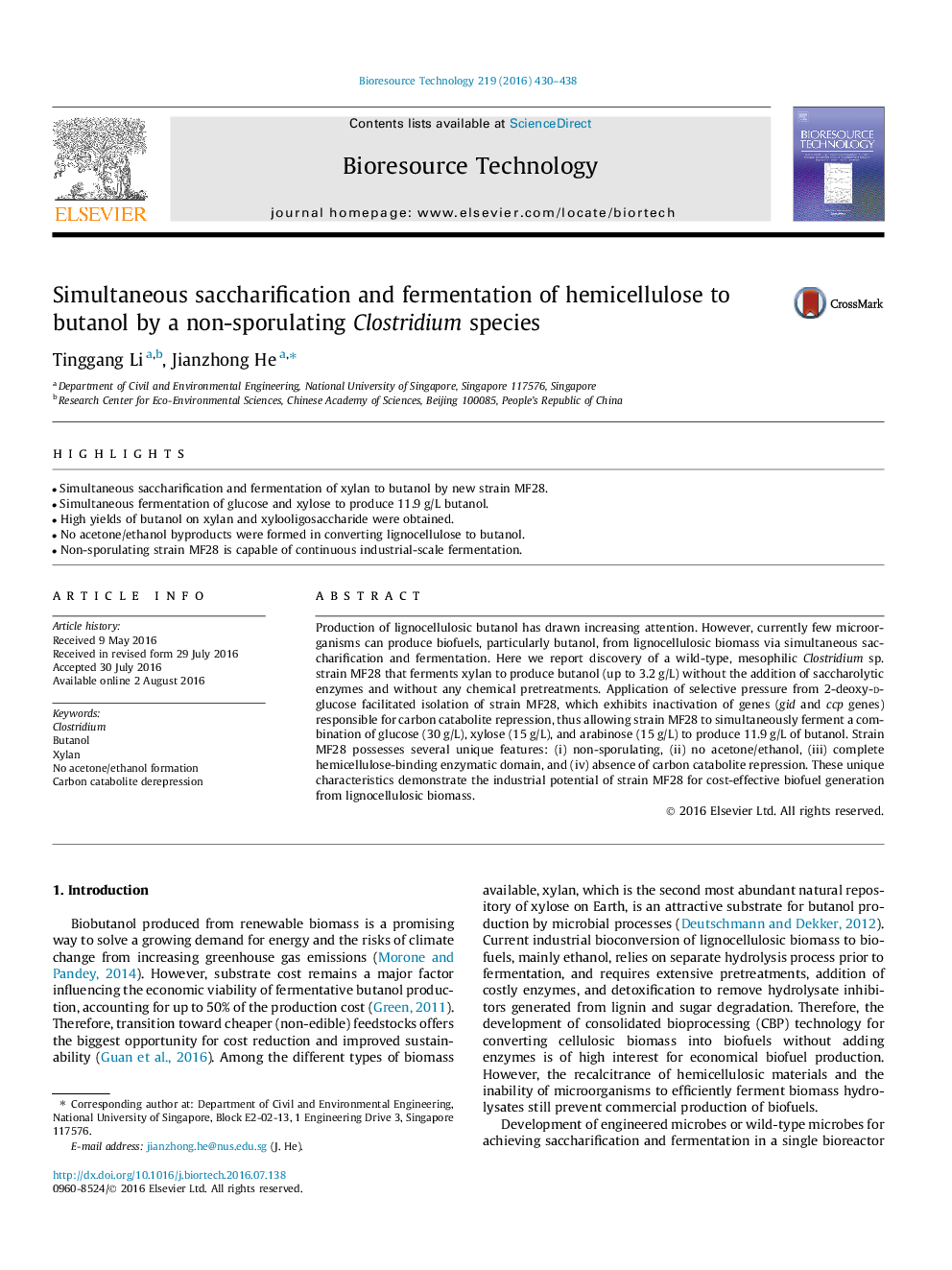| Article ID | Journal | Published Year | Pages | File Type |
|---|---|---|---|---|
| 7069842 | Bioresource Technology | 2016 | 9 Pages |
Abstract
Production of lignocellulosic butanol has drawn increasing attention. However, currently few microorganisms can produce biofuels, particularly butanol, from lignocellulosic biomass via simultaneous saccharification and fermentation. Here we report discovery of a wild-type, mesophilic Clostridium sp. strain MF28 that ferments xylan to produce butanol (up to 3.2Â g/L) without the addition of saccharolytic enzymes and without any chemical pretreatments. Application of selective pressure from 2-deoxy-d-glucose facilitated isolation of strain MF28, which exhibits inactivation of genes (gid and ccp genes) responsible for carbon catabolite repression, thus allowing strain MF28 to simultaneously ferment a combination of glucose (30Â g/L), xylose (15Â g/L), and arabinose (15Â g/L) to produce 11.9Â g/L of butanol. Strain MF28 possesses several unique features: (i) non-sporulating, (ii) no acetone/ethanol, (iii) complete hemicellulose-binding enzymatic domain, and (iv) absence of carbon catabolite repression. These unique characteristics demonstrate the industrial potential of strain MF28 for cost-effective biofuel generation from lignocellulosic biomass.
Keywords
Related Topics
Physical Sciences and Engineering
Chemical Engineering
Process Chemistry and Technology
Authors
Tinggang Li, Jianzhong He,
